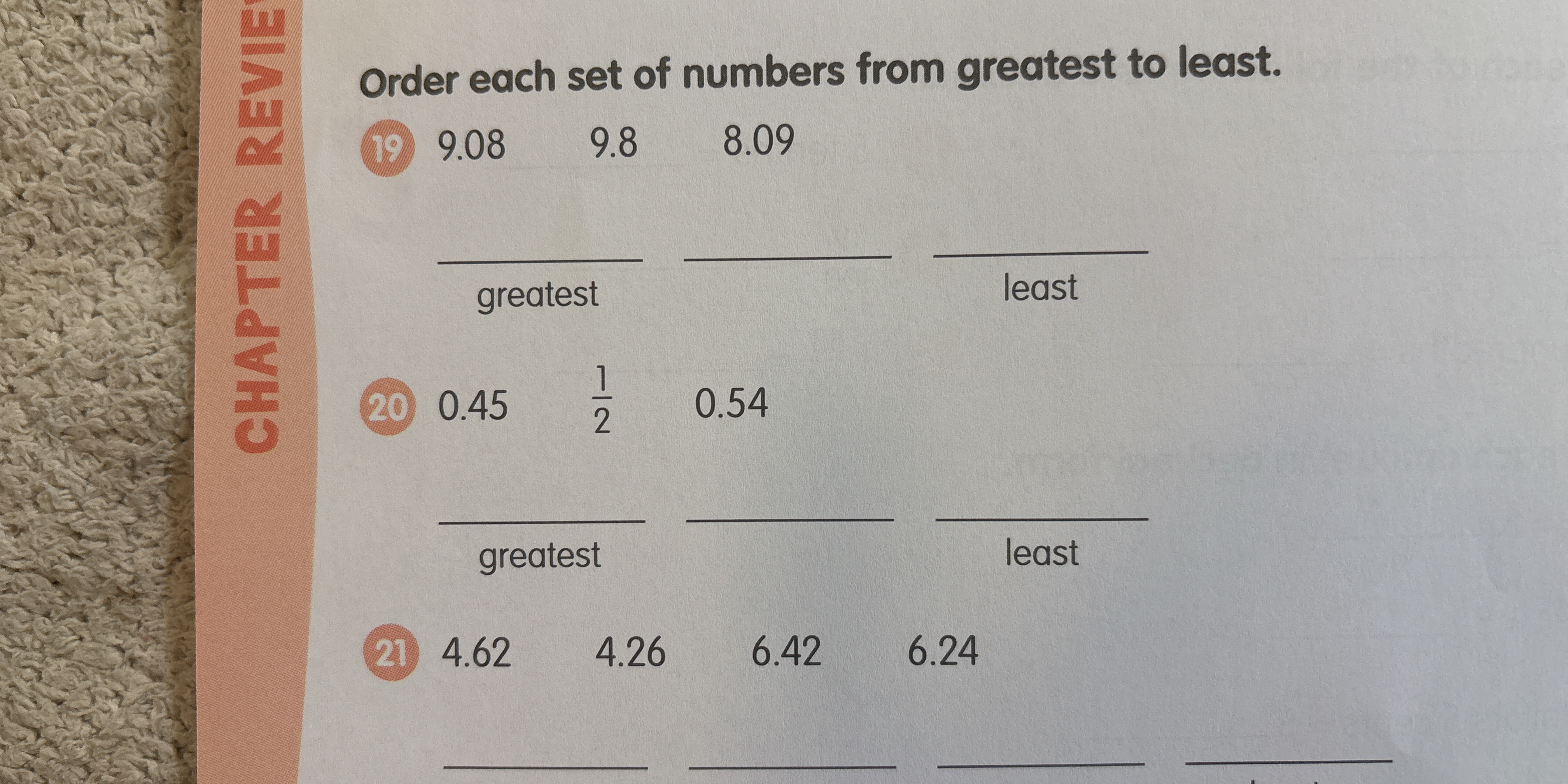Order each set of numbers from greatest to least: 1) 9.08, 9.8, 8.09; 2) 0.45, 1/2, 0.54; 3) 4.62, 4.26, 6.42, 6.24.

Understand the Problem
The question requires ordering sets of numbers from greatest to least. The key concepts involve comparing decimal numbers and a fraction to determine their relative sizes.
Answer
19. $9.8 > 9.08 > 8.09$; 20. $0.54 > 0.5 > 0.45$; 21. $6.42 > 6.24 > 4.62 > 4.26$
Answer for screen readers
- $9.8 > 9.08 > 8.09$
- $0.54 > 0.5 > 0.45$
- $6.42 > 6.24 > 4.62 > 4.26$
Steps to Solve
-
Compare the first set of numbers: 9.08, 9.8, and 8.09
To determine the greatest and least, compare each number:
- $9.8$ is greater than $9.08$ and also greater than $8.09$.
- $9.08$ is greater than $8.09$.
Thus, the order is: $$ 9.8 > 9.08 > 8.09 $$
-
Compare the second set of numbers: $0.45$, $\frac{1}{2}$, and $0.54$
Convert $\frac{1}{2}$ to decimal:
- $\frac{1}{2} = 0.5$.
Now compare:
- $0.54$ is greater than $0.5$.
- $0.5$ is greater than $0.45$.
Thus, the order is: $$ 0.54 > 0.5 > 0.45 $$
-
Compare the third set of numbers: $4.62$, $4.26$, $6.42$, and $6.24$
Compare the first two and the last two numbers separately:
- Between $4.62$ and $4.26$, $4.62$ is greater.
- Between $6.42$ and $6.24$, $6.42$ is greater.
Combine the results:
- Therefore, the greatest number overall is $6.42$, followed by $6.24$, then $4.62$, and finally $4.26$.
Thus, the order is: $$ 6.42 > 6.24 > 4.62 > 4.26 $$
- $9.8 > 9.08 > 8.09$
- $0.54 > 0.5 > 0.45$
- $6.42 > 6.24 > 4.62 > 4.26$
More Information
When ordering numbers, it's essential to ensure that all numbers are in the same format for easier comparison. This often means converting fractions to decimal form or aligning decimal places.
Tips
- Confusing decimal place values can lead to incorrect ordering. Always ensure that numbers are compared directly in their decimal form.
- Miscalculating the decimal equivalent of fractions might lead to discrepancies when comparing.
AI-generated content may contain errors. Please verify critical information